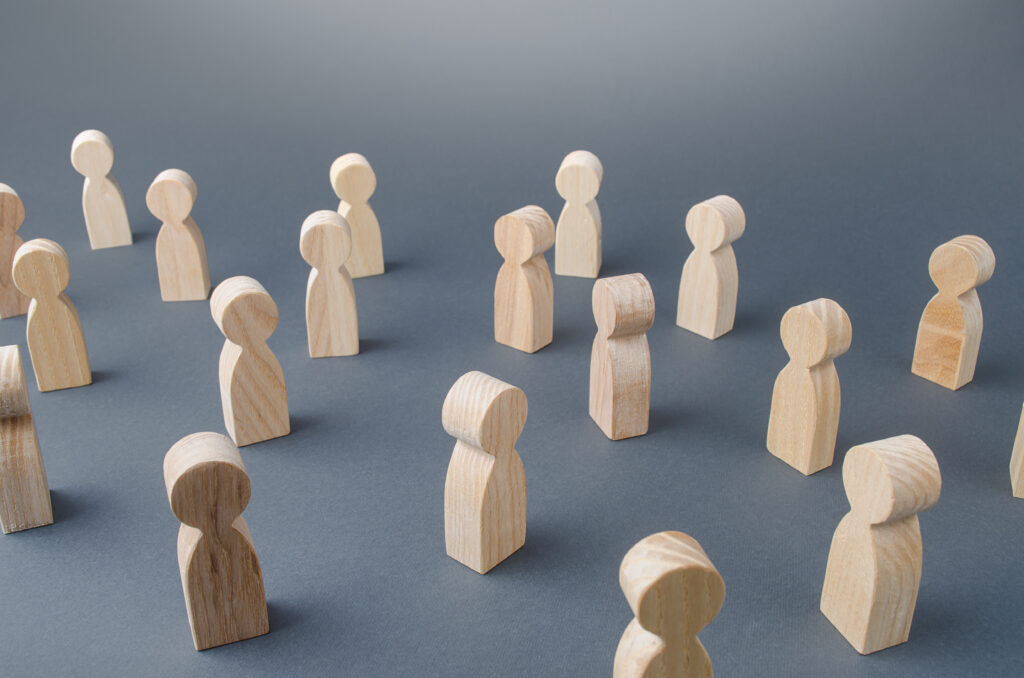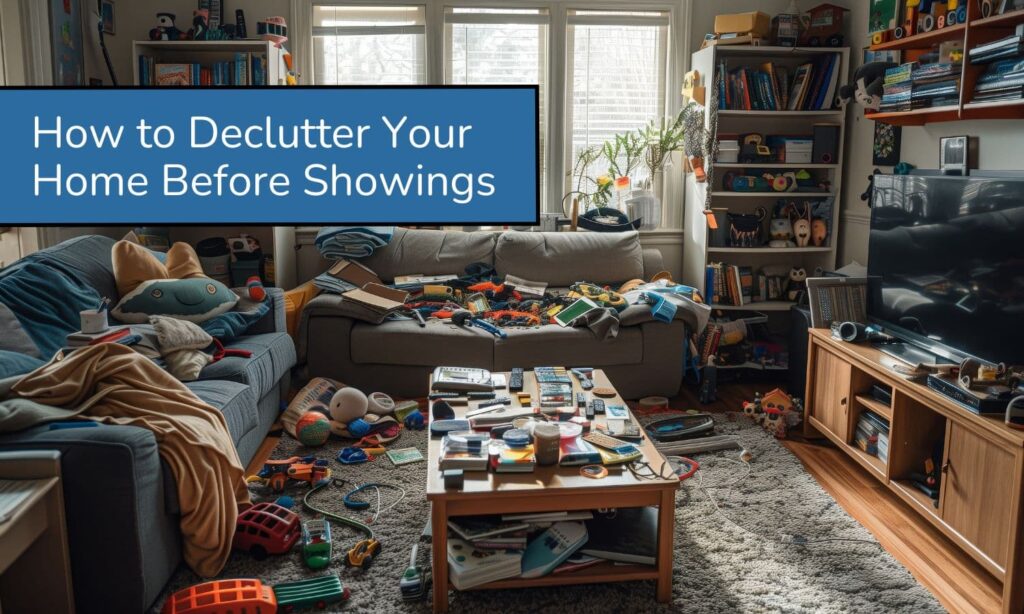Conquering Emotional Attachment to Declutter Your Life
Decluttering your living space can feel incredibly daunting, especially when navigating the sentimental value we attach to certain items. The process often brings up feelings of nostalgia that can cloud our judgment about what to keep and what to let go. Many individuals face this challenge, resulting in accumulated possessions that no longer serve a practical purpose. This clutter can lead not only to physical disorganization but also to emotional stress, making it essential to adopt strategies that promote emotional detachment.
Focusing on the benefits of freeing yourself from unused items can provide the motivation you need to embark on this liberating journey. Consider the following compelling reasons:
- Clear Space: An organized environment fosters mental clarity. Studies show that a decluttered space can aid in reducing distractions, leading to improved focus and productivity in both work and daily tasks.
- Reduce Stress: A cluttered environment can contribute to increased anxiety levels. The act of physically and mentally letting go can create a sense of relief, allowing you to enjoy your surroundings fully and calmly.
- Gain Financial Relief: Consider the financial aspect; selling or donating your unwanted items can not only provide cash in your pocket but also offer tax deductions when you donate to a qualified charity. Sites like Facebook Marketplace, Craigslist, and eBay make it easier than ever to offload these items.
Furthermore, shifting your perspective on possessions can be transformative. Emotional detachment does not mean erasing memories associated with certain objects; rather, it allows you to cherish those memories without needing to keep the objects themselves. For example, you could take photographs of sentimental items to preserve the memory while clearing up physical space. This approach fosters a lifestyle focused on experiences rather than material possessions, reflecting the growing trend toward minimalism.
Are you ready to discover effective strategies for letting go? Engaging in this practice can yield profound benefits, from a clearer living space to a more peaceful mental state. Various resources, including decluttering books and online workshops, can guide you through this process, making the journey not just manageable but enjoyable. Whether you’re moving into a new home or simply looking to make a fresh start, unraveling the attachments to unused items can be an empowering experience that helps you reclaim your space and peace of mind.
Ultimately, embracing emotional detachment enriches your life by allowing you to focus on the things that truly matter: the relationships you nurture and the experiences you cultivate. As you embark on this path, remember that letting go can be an exciting journey rather than a painful farewell.

SEE ALSO: Click here to read another article
Understanding Emotional Attachment to Items
Many of us harbor belongings that hold sentimental value—gifts from loved ones, items from significant life events, or even objects inherited from family members. While these possessions can evoke fond memories, they often contribute to emotional clutter that hinders our ability to live freely. Understanding the nature of emotional attachment is the first step in the process of decluttering.
Psychologists indicate that emotional attachment is a natural human tendency, where we ascribe feelings and memories to inanimate objects. This attachment can create an internal conflict when it comes to decluttering. You might wonder how to separate the significance of memories from the physical presence of the item. The reality is that many times, the feelings associated with an object don’t diminish when you let it go. Instead, you may find peace in acknowledging that memories exist independently of physical possessions.
Strategies for Cultivating Emotional Detachment
Examining your emotional connection to items can help you establish a healthier relationship with your belongings. Consider the following strategies to foster emotional detachment and simplify the process of letting go:
- Reflect on the Value: Before deciding to keep or discard an item, ask yourself what value it truly holds in your current life. Is it useful or meaningful today? A simple question like, “Does this item spark joy?” can help clarify your feelings.
- Memory Preservation: Instead of holding onto items with sentimental value, consider alternative ways to preserve those memories. Create a digital scrapbook or photograph important objects. This ensures you can revisit the memory without the burden of physical clutter.
- Establish a Timeline: Set a timeline for how long you will keep unused items. If you haven’t engaged with an object in the last six months, it may be time to let it go.
By incorporating these strategies, you can gradually detach emotionally from items, making it easier to part with things that no longer serve a purpose in your life. Decluttering is not only about creating more space; it is also about making room for new experiences and relationships that enrich your existence. As you begin to detach from unused items, take note of how it impacts your daily life. You may find greater clarity, reduced anxiety, and an inviting atmosphere that promotes positivity.
Ultimately, the goal is to create a harmony between your physical space and emotional well-being. Embracing emotional detachment allows you to reclaim control over your environment, which can lead to a deeper sense of fulfillment and joy as you make room for what truly matters.
| Category | Advantages |
|---|---|
| Mental Clarity | Freeing yourself from unnecessary items can lead to improved mental clarity and focus, allowing you to channel your energy towards more meaningful activities. |
| Enhanced Living Space | A decluttered environment creates a serene atmosphere, promoting relaxation and peace of mind in your everyday life. |
| Emotional Freedom | Emotional detachment from items helps in reducing stress, allowing for a more intentional lifestyle that values experiences over possessions. |
| Financial Benefits | Selling unused items can lead to extra income, providing funds for new experiences or savings to enhance your financial wellbeing. |
SEE ALSO: Click here to read another article
The Psychological Benefits of Emotional Detachment
Emotional detachment from physical belongings not only allows you to declutter your living space but also brings significant psychological benefits. People often underestimate how much their surroundings can affect their mental well-being. In the United States, where consumerism and materialism are prevalent, many individuals find themselves overwhelmed by a plethora of possessions, leading to increased anxiety and stress. By learning to detach emotionally from items, you create not just a cleaner space but also a clearer mind.
Studies have shown that a cluttered environment can lead to diminished focus, increased feelings of overwhelm, and even lower productivity. A 2020 study published in the journal Environment and Behavior indicated that individuals surrounded by excessive clutter reported higher levels of stress compared to those in organized spaces. This emotional weight can manifest itself in various forms: fatigue, frustration, and even a sense of paralysis when faced with the task of decluttering.
Creating a Sense of Freedom
When you successfully let go of unused items, you cultivate a sense of freedom and liberation that can be transformative. Many people report feeling lighter and emotionally unburdened after decluttering, as if a weight has been lifted from their shoulders. This sensation can be linked to the psychological concept known as minimalism, which emphasizes living with only what is necessary and truly valued. A minimalist lifestyle encourages individuals to rethink their relationships with possessions, fostering a greater appreciation for experiences over material goods.
Moreover, when you practice emotional detachment, you foster an environment where new opportunities can flourish. You may find that as you create physical space, you are also creating mental space for new experiences, hobbies, and even friendships. Imagine embarking on a new chapter in your life, free from the burden of items that no longer serve a purpose. This newfound clarity can lead to enhanced creativity and personal growth.
- Mindfulness in Everyday Life: Engaging in the process of emotional detachment encourages mindfulness. You become more aware of your feelings and reactions towards objects, fostering a deeper understanding of your values and priorities.
- Improved Decision-Making: As you practice letting go, you develop better decision-making skills. You’ll learn to assess what truly adds value to your life, leading to more intentional choices about what to acquire in the future.
- Enhanced Relationships: Freeing yourself from material clutter can also improve relationships. As you let go of items bound to specific memories or people, you allow room for new connections and experiences to thrive.
Furthermore, the act of decluttering can serve as healing from past experiences or relationships. The emotional heaviness of unused items often serves as a lingering reminder of what was, obscuring the present. By embracing emotional detachment, you can let go of the past and focus on creating a future that is not defined by objects but by experiences and growth.
Incorporating these practices into your life doesn’t have to be overwhelming. Start small, tackling one drawer or a closet at a time, and gradually build upon your success. Every step toward letting go of unused items enriches your emotional landscape, allowing you to live more fully in the present. As these benefits compound, the journey towards emotional and physical liberation becomes increasingly impactful.
SEE ALSO: Click here to read another article
Embracing Emotional Detachment for a Clutter-Free Life
In conclusion, emotional detachment serves as a powerful tool for freeing yourself from unused items and creating a healthier, more fulfilling living environment. By recognizing the psychological impact of clutter, you can begin to understand how letting go of physical possessions translates into a greater emotional freedom. This process not only enhances your mental clarity, but also cultivates a lifestyle focused on experiences rather than material accumulation.
As you embark on this journey of decluttering, remember that every small effort counts. Start by understanding your relationship with each item and asking yourself if it truly adds value to your life. This shift in perspective can lead to improved decision-making and stronger relationships as you prioritize what matters most. With the act of letting go, you create space—not just physically, but emotionally as well—for new connections and personal growth.
Consider diving deeper into the minimalist philosophy, which champions a more mindful way of living that aligns with your values. By embracing minimalism, you encourage a lifestyle rich in experiences, relationships, and creativity, enabling you to navigate life’s challenges with resilience. As you practice emotional detachment, tap into its benefits and realize that a clutter-free space is just the first step towards a life filled with purpose and joy.
As you explore this path towards emotional and physical liberation, remember that it’s not merely about discarding items but about reclaiming your emotional landscape. Release the hold of the past, and step boldly into a present defined by possibility. Let each item you release symbolize a step closer to a healthier, more vibrant life.

Linda Carter is a writer and organization expert specializing in minimalism and personal organization. With extensive experience helping individuals create clutter-free, functional spaces and adopt mindful habits, Linda shares her knowledge on our platform. Her goal is to empower readers with practical advice and strategies to simplify their lives, stay organized, and achieve a sense of calm and balance in their daily routines.


